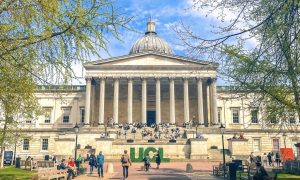With the reinstatement of the PSW graduate work visa in the UK,immigrantsMore and more Chinese families are choosing the UK as the destination for their children's undergraduate and postgraduate studies. However, due to the lack of information, many students and parents have stepped into the pit of "spending too much, not adapting, and choosing the wrong specialty". In order to help the 2025 British freshmen to start their study abroad journey more smoothly, this article summarizes the top sevenStudy in the UKCommon misconceptions, avoid the pit in advance and take the road less traveled.
I. Myth 1: The higher the ranking, the more appropriate the school
the actual facts: Ranking does not equal fit.
When choosing a school, you should pay attention to more than the QS ranking.Professional strengths, internships, and urban employment environments.. Certain arts and media programs are better resourced at lower ranked universities. For example, Coventry University has better resources for media internships than some of the top Russell Group universities.
Second, the misunderstanding of two: professional randomly selected, read it first.
the actual facts: The UK Taught Masters is only 1 year long and time is of the essence.
Once you choose the wrong major, it is difficult to change majors and you will miss the best job opportunities. It is recommended that you choose your major according to your future career direction.Highly rewarding & combined with interestmajors such as AI, business analytics, supply chain, and media brand management.
Third, misunderstanding three: go to the natural can learn English well
the actual facts: Language environment ≠ language proficiency.
Classes are fast-paced and assignments are demanding. Not building a good language foundation (IELTS writing 6.5+) in advance may result in incomprehensible classes and poorly written papers. It is recommended to read at least 10 English documents and practice academic writing format before departure.
IV. Myth 4: London = more opportunities = preferred location
the actual facts: London has a lot of opportunities, but it's also the most rolled up, expensive and stressful to live in.
Cities such as Edinburgh, Manchester and Leeds have a lower cost of living and many job opportunities. In particular, IT, gaming and finance jobs are more concentrated in the "Northern Cities".
V. Myth 5: Working only to support living expenses
the actual facts: The UK allows students to work part-time for 20 hours a week, but theAround £10 per hourThe tuition fee is only enough to cover your daily expenses. Don't be under the illusion that you can earn tuition by working part-time. Family budget must be preparedRMB 250,000-300,000 per yearAbove.

VI. Myth 6: PSW = sure to stay
the actual facts: PSW only provides a 2-year window to find a job andnonimmigrant visaThe
If you really want to stay, you have to turn.Skilled Worker VisaThe employer will need to find an employer who is willing to offer a work visa and pay a salary of £26,200+. ThereforeInternship experience and career planningPrepare ahead of time instead of rushing to find a job after graduation.

VII. Myth 7: Returning home after study = "returnees must be fragrant".
the actual factsReturnees are not a "halo guarantee"; employment is based on competence.
HR is more interested in internships, language skills and practical skills (programming/data/analysis, etc.). Competition for jobs back home is also fierce, so it is recommended that you do as much as possible during your time in the UK.Gain internships + project experience + certificatesThe "gold content" of the program is enhanced.
concluding remarks
Studying in the UK is a path to a wider world, but it's not something that can be successfully transformed with just a paper offer. Doing more homework before choosing, planning clearly in the path, and studying with positive self-discipline are the king of studying in the UK, which means "spending less money and taking less detours". I hope you can walk steadily, see clearly and gain a lot on this study abroad road!






